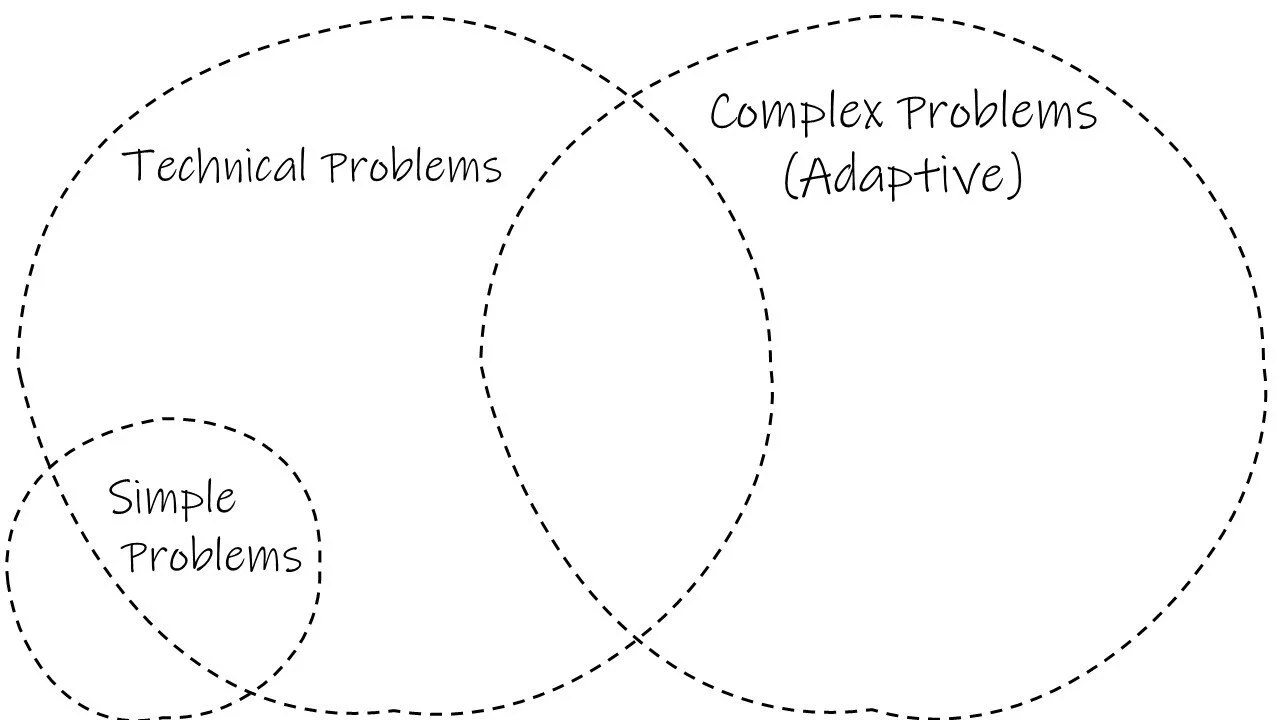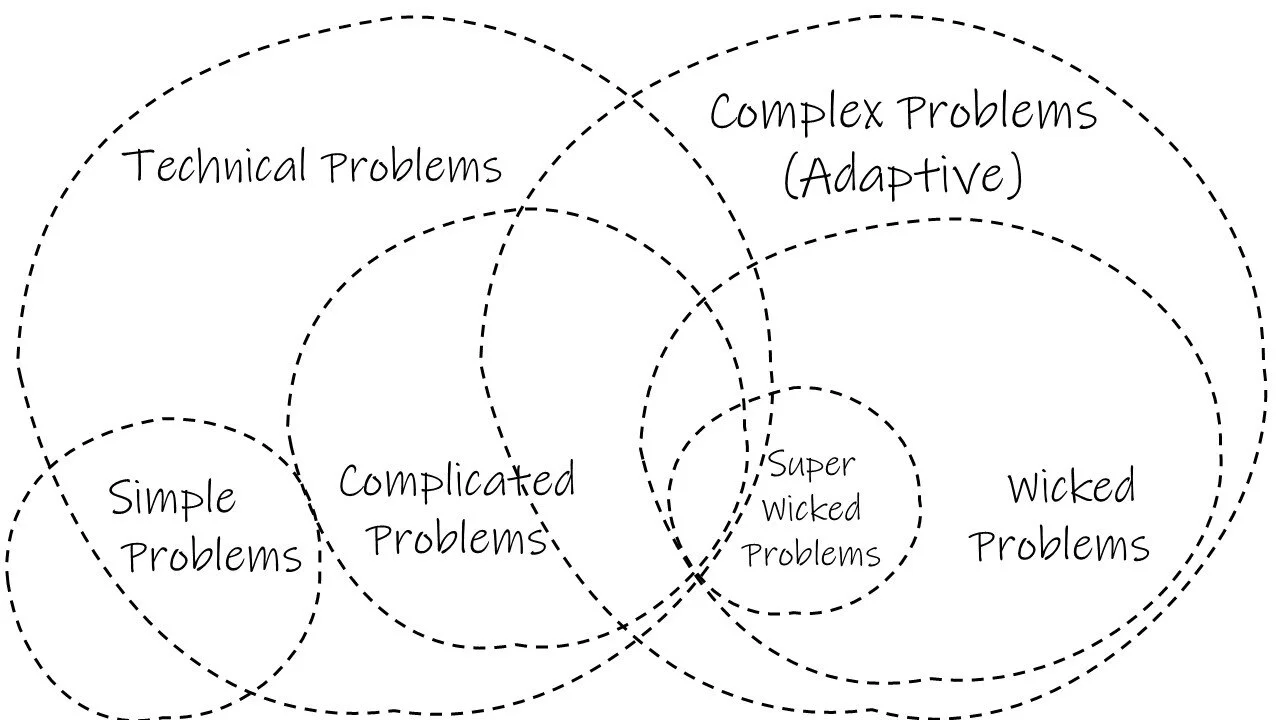Technical and Complex Problems
Part II of The Muddle
One of the many contributions of Adaptive Leadership (Heifetz et al.), is the distinction between technical and complex problems (also called adaptive problems or adaptive challenges). In this post, we discuss these types of problems so we can use them in talking about The Muddle. If you missed the first post in this series, it was about types of uncertainty.
Previous post in this series: Uncertainty (Incomplete and imperfect information, game theory)
This post: Technical and complex problems (Adaptive Challenges)
Next post: Putting all this together, The Muddle, where we have uncertainty about the types of problems we face
Let’s start with three types of problems: Technical, Simple and Complex.
Technical problems are ones that are easy to identify, typically have quick and easy solutions, are linear (have a beginning, middle and end) and, most importantly, lend themselves to being addressed by experts. Many (but not all!) plumbing, engineering, medical/dental, agricultural, commercial problems are technical. An expert can advise on a solution to a technical problem - the solution may be very complicated (have many steps, require sequencing, be tedious) but complicated is not the same thing as complex.
Simple problems are just technical problems that don’t really need an expert. We don’t really need them to get to The Muddle, but out of respect for experts, let’s include simple problems here so we don’t oversimplify highly technical problems. It is not simple to put a rocket in space, build a hydroelectric dam or design a latrine for a thousand refugees, these are complicated, technical problems (but not necessarily complex).
Complex problems are not easy to identify, they don’t have quick and easy solutions, are rarely linear (they often have nonlinear, exponential or dynamic effects, spillovers, etc.) and there often isn’t an expertise available to solve them, because each problem is unique and they are often social problems that require change in behavior by the people involved. They might have unintended consequences or other feedback effects.
Oftentimes, people mistake the kind of expertise one needs to solve technical problems for expertise that can solve complex problems, but the distinctions are important:
Putting a rocket in space is usually considered a technical problem, but building a space program that puts rockets into space is a complex problem (as is negotiating the peaceful uses of space and negotiating what to do about space debris) - it requires management, negotiation, planning and communicating.
Building a hydroelectric dam may be technical, but negotiating with the people who will be displaced by the dam is a complex problem that requires adaptation, listening and diplomacy. Likewise negotiating water rights and usage downstream would be complex and adaptive.
Building sanitation for refugees may be technical, but understanding what the customs and mores of the people who will be using them, perceptions of security and propriety, expectations about labeling, etc., are all complex problems.
This is tricky. The world is complicated and we encourage people to specialize and become experts but we can’t overload that expertise. We need to respect people that have expertise on technical skills and trust their advice when they are solving technical problems, HOWEVER, we also need to reign in people with technical advice when they claim that expertise is all that is necessary to solve a complex problem, it may be necessary but may not be sufficient. The Venn diagram drawn above overlaps in the middle - many problems are both technical and complex/adaptive.
In fact, the first Venn diagram above was oversimplified. Within technical problems there are complicated problems (described a little above). And, if you want to get really technical (!) there are subsets of complex problems that are wicked and super wicked. We can talk about those some other time, but suffice to say they are simply the most difficult of complex problems. For completeness, the Venn is updated below.
Next stop, The Muddle!
If you missed incomplete and imperfect information or want to revisit it before we get to The Muddle, click here.
If you are ready, enter The Muddle.

